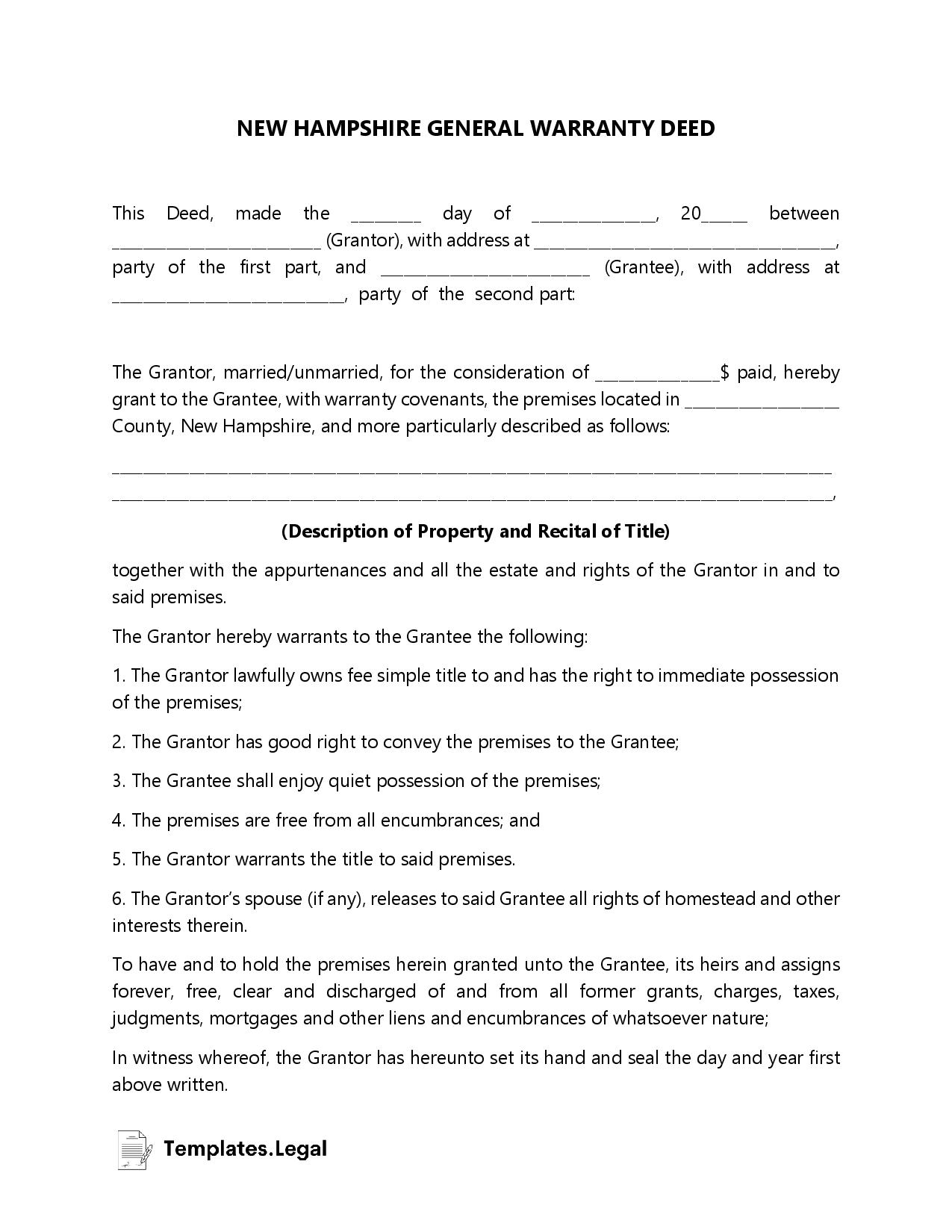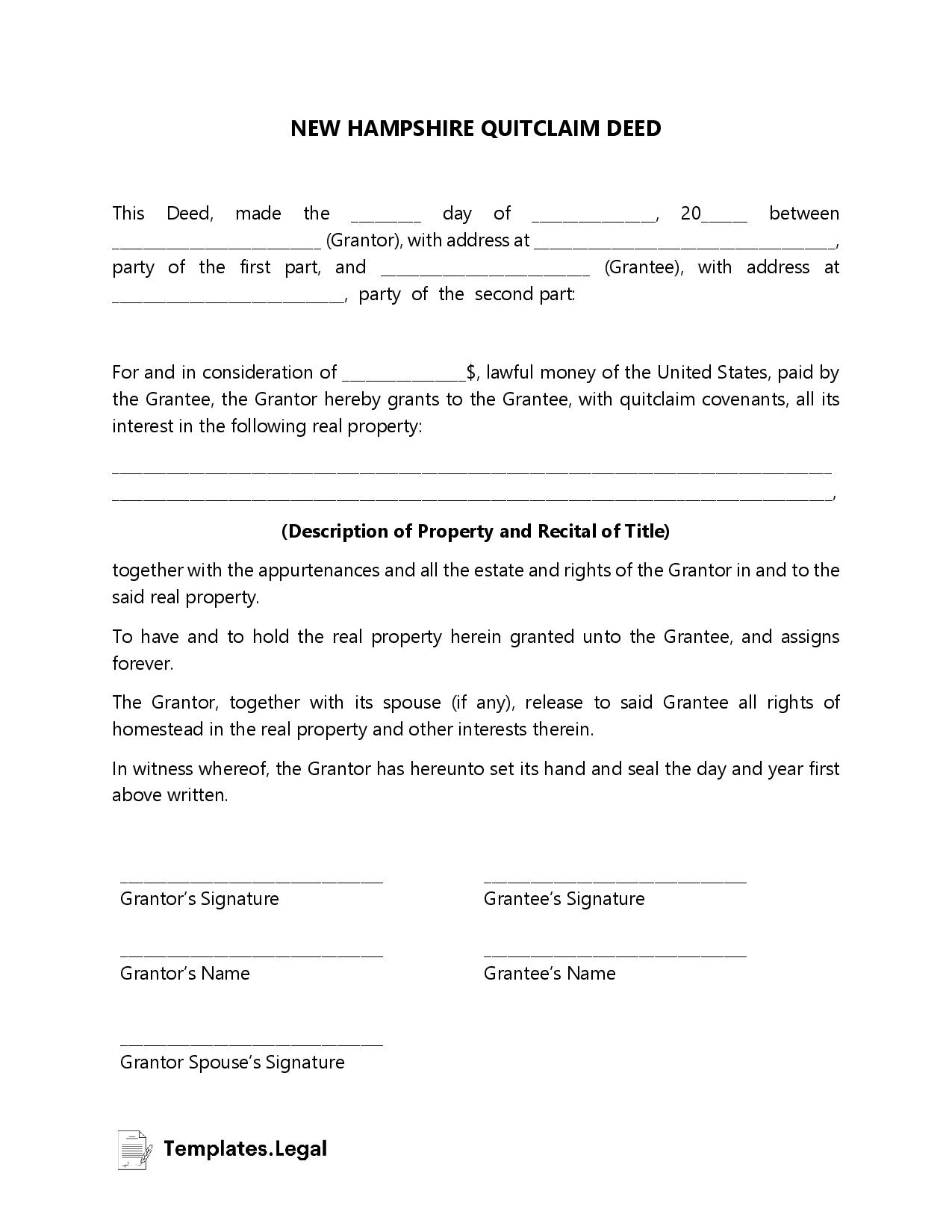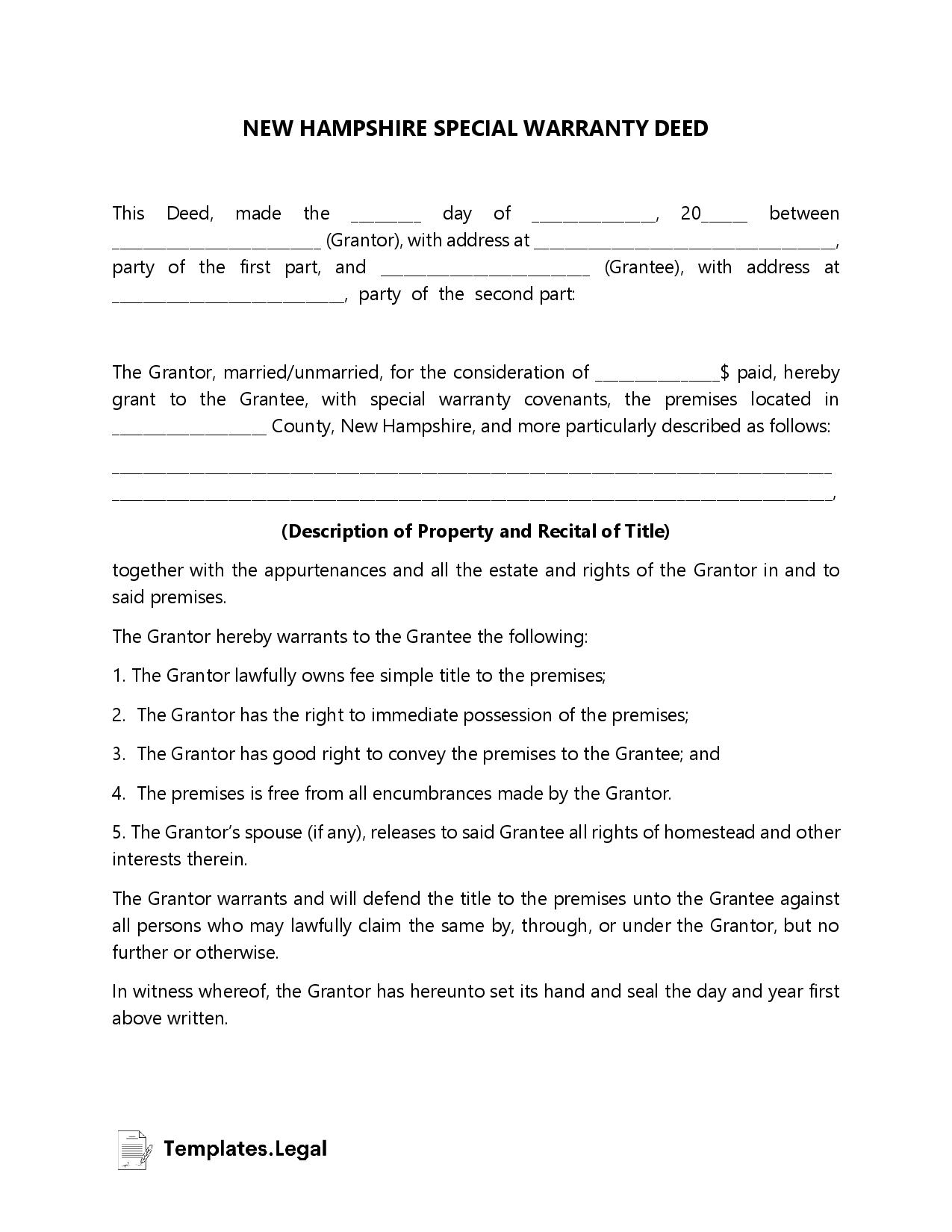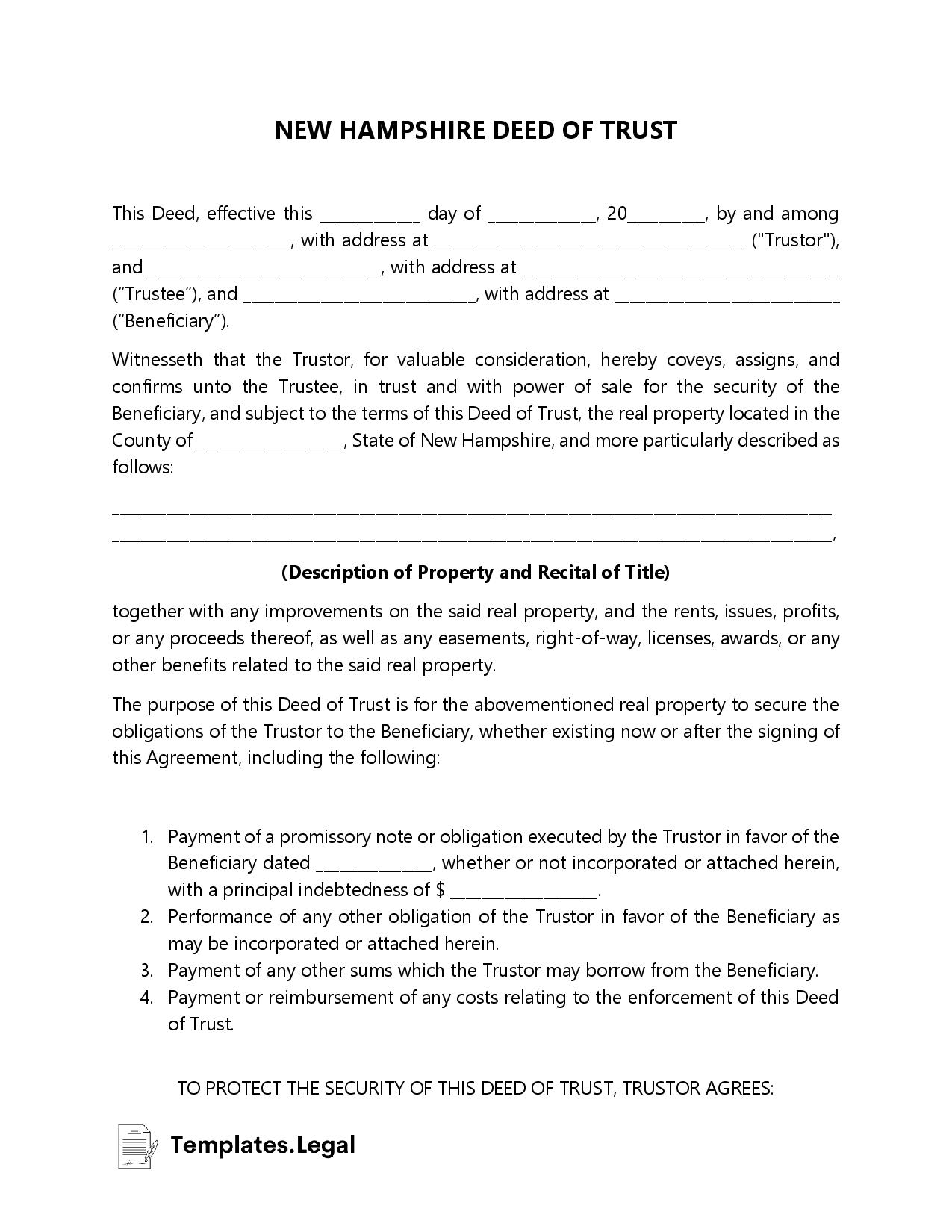New Hampshire Forms & Templates
Acquiring New Hampshire deed forms is absolutely essential to ensuring the process of selling and buying a home goes smoothly. Not having the right form could cause hold-ups and confusion that could ultimately halt the sale. Deeds are the way that we say “Yes, I own this property, and I have the legal right to sell it to you”. Through deeds, title insurance can also help prevent issues of former/present liens and claims.
New Hampshire General Warranty Deed
The general warranty deed is what will signify that there are no impediments associated with the property, which the grantor has the legal right to sell. By granting the warranty to a person, you agree that they have the right to claim ownership of the title and to defend their claim.
The six covenants associated with the warranty that act as assurances are:
- Covenant of quiet enjoyment
- Covenant for further assurances
- Covenant of seisin
- Covenant against encumbrances
- Covenant of right to convey
- Covenant of warranty
New Hampshire Quitclaim Deed
As with the general warranty deed, the granter of a quitclaim deed will agree to defend your claim to the title. However, this agreement only extends to those associated with the seller at that time. If a former title holder were to claim ownership, the seller is not responsible.
New Hampshire Special Warranty Deed
This kind of deed is similar to the quitclaim deed. The grantor will not be responsible for any claims or breaches of warranty made before or after the ownership of the title. However, it doesn’t guarantee there are no other limitations or conditions attached to the current title. This scenario adds an extra measure of risk to the buyer, therefore being the reason why these deeds are typically only used in special instances.
New Hampshire Deed of Trust
When seeking a loan to purchase a property, a deed of trust is essential. Not to be confused with a mortgage deed that involves two parties, the deed of trust involves three parties that work together to benefit from a different aspect of the mutual goal of purchasing the home. It creates a scenario where the borrower secures a loan, and a trustee holds the title until the full payment of the loan.
The deed of trust process is as follows:
- The beneficiary loans the borrower money to purchase the property.
- The borrower transfers the title to a third party trustee
- The borrower repays the loan to the beneficiary, and the title transfers back to the borrower.




